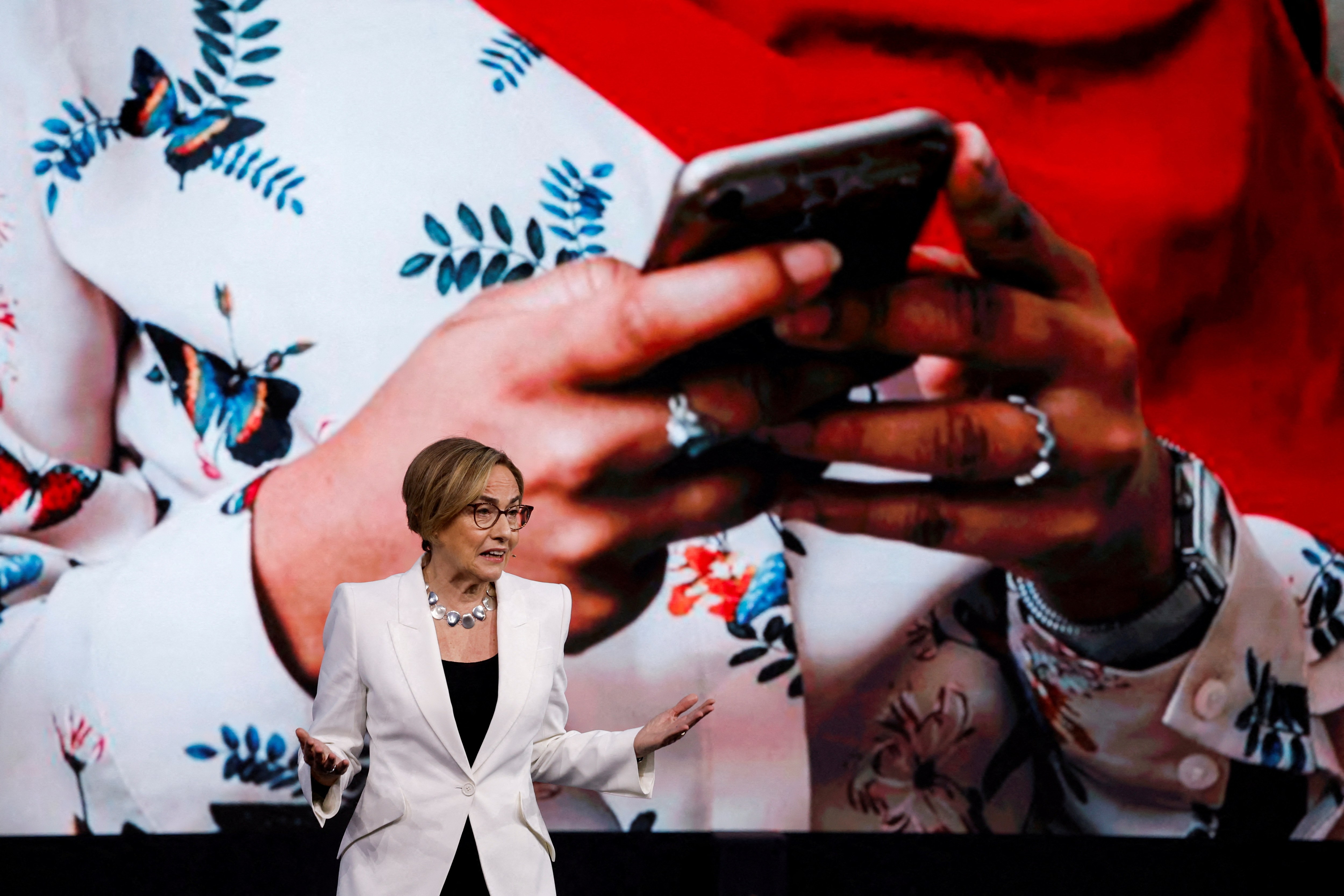On the face of it, long-awaited provisional findings by the competition regulator reviewing the proposed £18 billion merger of Vodafone’s UK business and Three UK seem damning. It’s never a good look when significant concerns are raised about the impact of the deal on consumers and rivals and over the scale of future investment.
Yet close watchers of the telecoms sector say that in fact the Competition and Markets Authority’s report, by proposing commitments that Vodafone and Three can agree to mitigate such risks, offers a pathway for the deal to go ahead.
The merger would create Britain’s biggest mobile network operator, bringing 27 million customers together and reducing the number of UK operators from four to three. The report comes after a year-long process and frenetic lobbying from the phone companies about the benefits of the deal to the nation’s mobile infrastructure.
The mood music towards having a smaller pool of operators has changed, certainly. Ofcom, the media regulator, said in 2022 that it did not have “a fixed position in relation to future mobile consolidation” and emphasised that competition hinged on more than “just the number of competitors”. This was quite a shift from 2015, when the European Commission blocked Three’s planned takeover of O2 — despite the former’s offer of a five-year price freeze and billions of pounds in investment — because it found that the deal would reduce customer choice and raise prices.
At this stage, analysts believe the Vodafone-Three tie-up looks likely to get the green light, even if not in the way that its participants might prefer. And there is not long to go until a final verdict. Responses to the provisional findings will be submitted to the regulator by September 27, with a conclusive decision due on December 7.
However, some market-watchers suspect that this date could slip. “The merger between Vodafone UK and Three UK will happen, but not in 2024,” Dario Betti, chief executive of the Mobile Ecosystem Forum, said. “What we saw on September 12 was not a halt by the Competition and Markets Authority but a series of change requests, which, while expected, will push the deal into next year.”
Whenever it comes, the decision will define Britain’s telecoms market for decades to come.
What are the areas of concern?
Overall, reducing the number of mobile network operators in the UK from four to three would result in a “substantial lessening of competition”, the competition authority said, affecting the supply of retail and wholesale mobile phone and data services.
For consumers, the potential impact on bills is a big sticking point. There may be price increases that could affect tens of millions of mobile customers, the regulator said, along with the possibility of a reduced service, such as smaller data packages. It had particular concerns about the impact on the poorest customers, who might end up having to pay more “for improvements in service quality they do not value”.
The merger also could lead to higher prices for wholesale companies that provide mobile phone services to customers by renting access to the UK’s network from Vodafone and Three. This, in turn, would have a knock-on effect on customers. Known as the mobile virtual network operators, they include players such as Sky Mobile, Lebara and Tesco Mobile. Typically they offer cheaper or more flexible mobile plans than the big carriers. The watchdog said they may have increased difficulty in securing good deals from the network operators, “restricting their ability to offer the best deals to retail customers”.
Investment in the network
The watchdog said the merger could lead to network improvements through greater integration and more investment in infrastructure because it would strengthen rivalry between the main players. That could encourage them to spend more on their services. However, it argued that this would not offset the impact on bills and the wholesale market and may not be as significant as Vodafone and Three have suggested.
What does the CMA suggest Vodafone could do?
In general, the competition authority prefers to impose “structural remedies” on companies to prevent competition issues, such as selling or separating parts of their businesses. In this case, the CMA suggested it would not be the right thing to do as “it is unlikely that there is a standalone business or business unit capable of being divested”. It will continue to explore whether there are certain assets that might be spun off or whether access to a certain amount of spectrum or certain mobile network assets could be limited.
Rather than structural remedies, it seems to prefer that the companies sign up to pledges or “behavioural remedies”, binding commitments to act in a certain way. This is partly because they operate in a highly regulated telecoms environment, so these can be monitored more closely than in other sectors.
The CMA said these pledges could be on investment in the network and on customer and wholesale price protections. It would like to see investment commitments from Vodafone and Three that are overseen by Ofcom, the industry regulator. It suggested that there could be “time-limited protections to ensure that retail customers are appropriately protected” in the first years of the merger, while the network integration and investment were progressing.
There also could be a commitment setting out access terms for the network operators or wholesale customers, which might include ring-fencing some of their network capacity exclusively for them.

What do Vodafone and Three say?
Vodafone and Three vehemently disagree with the CMA’s findings.
They assert that they need to expand their operations in order to invest in expensive infrastructure and to cope with rising demand from price-sensitive customers. They want “to build one of Europe’s leading 5G networks, transform the customer experience and give better choice and value for mobile and broadband customers across the UK”.
Margherita della Valle, 59, Vodafone’s chief executive, said that “by all measures, this merger is pro-growth, pro-customer, pro-investment and pro-competition. It is the catalyst to transform UK networks.”
They also have said that the merger would make their businesses more financially viable and that they need scale to drive returns. Robert Finnegan, 62, the chief executive of Three, said that his business was “negative in terms of our cashflows every year and having to borrow from our shareholders to fund the activities. The current status quo is not really a four-player market. It’s a two-strong-player, two-weak-player market.”
Vodafone and Three are willing to have their £11 billion investment plans supervised by Ofcom, but have stopped short of committing to the other remedies proposed by the CMA, saying that they would engage in talks on the findings. Finnigan said that divesting parts of the spectrum would be “incompatible” with Three’s network commitments.
What do their rivals think?
BT put out a holding statement acknowledging the report, saying merely: “We’re considering the CMA’s provisional findings and will continue to engage via the process.” However, in its June submission to the CMA, the company was punchier, arguing that the deal would lead to reduced investment because the new company would have a “disproportionate share of capacity and spectrum, unprecedented in UK and western European mobile markets.
“The unprecedented access that the merged entity will have to BT’s (as well as to VMO2’s) strategic investment plans will give rise to a substantial lessening of competition in UK mobile telecoms markets, ultimately resulting in higher prices, poorer network quality and reduced incentives to invest, all to the detriment of UK consumers.”
In contrast, Virgin Media O2 had already come out in support of the deal after it struck a network agreement with Vodafone that neutered its objections. This extended the two companies’ existing network-sharing arrangement and allowed Virgin Media O2 to acquire more network spectrum, should the merger go ahead.
After this deal was signed at the start of July, Lutz Schüler, 56, the chief executive of Virgin Media O2, said: “This new agreement with Vodafone ensures that quality mobile network choice, performance, coverage and competition is enhanced to the benefit of millions of consumers, businesses and our mobile operator partners across the country. We believe that this new agreement addresses the issues we have voiced and the CMA outlined in its initial decision and will now continue our engagement with the regulator in this spirit.”
Which?, the consumer group, agrees with the authority that the merger could lead to higher prices and lower quality for consumers. Through its analysis of four years of Ofcom data, it found that significant proportions of recent switchers to either Three or Vodafone had come from the other company.
